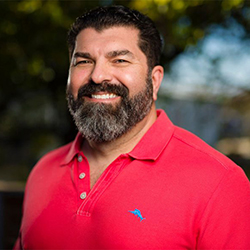Why You Should Start Saving for Your Kids’ College Education Now
Introduction
Do you recall being young and carefree, barely out of high school, and signing on the dotted line for student loans to finance your higher education degree? If you're anything like me, you might've not fully grasped the gravity of that decision.
I sat in my first finance class during my sophomore year at the University of Texas, hastily taking notes. My professor’s words echoed in my mind: “One of the biggest mistakes young adults make is taking on too much student loan debt.” It was too late for me. I was drowning in student loans, intensifying my regrets.
You see, my parents didn’t save for my college education. They both worked and lived within their means, instilling in me the importance of hard work, but we never discussed higher education or financial support.
When the time came, my path was clear – I needed student loans to pay for my education and/or higher learning. A decision I made when I was just 18 years old.
I didn’t have the tools or understanding to fully grasp the weight of that decision. Yet, it was a choice that would shape the trajectory of my life.
After high school, Baylor University’s offer could have saved me from this financial quagmire. However, I chose the University of Texas for my education, a costly choice that led to massive loans and delayed homeownership, altering my career path unexpectedly.
Read more

The Burden of Education Loans
Let me take you on a journey through my personal experience with education loans. Like many, I was ecstatic to attend the University of Texas for both my bachelor's degree and postgraduate study. The price? A staggering $103,000 in education loans. This figure far surpasses the U.S. average of $37,574 for a bachelor’s degree and $80,494 for a master’s degree.
This debt was a heavy burden that shifted the course of my life in unexpected ways.
Turning Points and Tough Choices
The debt hindered my husband and me from purchasing our first home. I was determined to eliminate this debt, which led me to a career in public schools, solely to be eligible for public service loan forgiveness after 120 qualifying payments.
A Glimpse of Freedom
I found myself teaching high school—not what I had planned post-graduate school—just to qualify for the public service loan forgiveness program. It was a roller coaster journey, but it eventually paid off. Last month, I received confirmation that my loans were forgiven. It felt like winning the lottery, but it’s an ordeal I wouldn’t want my kids to endure.

What Is Higher Education?
There are mixed feelings these days about the value of higher education. But what exactly is it? Higher education refers to post-secondary education—colleges, universities, and institutions offering academic degrees or professional certifications.
It spans undergraduate degrees, graduate degrees, professional degrees, or vocational training. These paths offer specialized knowledge and skills to help individuals thrive in a competitive job market.

The Approach to Master’s Programs
Master’s degrees often require work experience. That real-world context helps students better understand how their education translates into societal and professional value.
Vocational training, on the other hand, delivers practical skills for specific careers like carpentry, plumbing, or culinary arts. But none of these paths come with a guarantee. Higher education, though promising, can easily become a gamble if approached without intention.
Open Conversations and Informed Choices
Inspired by my own experience, my husband and I committed to saving for our kids’ college early. We opened a 529 plan—an investment that, thankfully, proved worthwhile.
Enter Dan Dillard, the Financial Planner

Working with Nest Financial and Dan Dillard changed my understanding of education planning. Dan, with over two decades of experience, emphasizes the importance of starting early due to the 8% inflation rate in college expenses over the past 25 years.
Tax-Advantaged Saving Options
According to Dan, 529 plans and certain retirement accounts can offer tax benefits. As he puts it, “It’s increasingly difficult for middle and low-income families to save for full tuition and board for their children, so starting early is always recommended.”
The Higher Education Decision: A Family Affair
Dan recommends being open with your children about what you can afford—and the reality of student debt. Early conversations help set expectations and guide decision-making about scholarships, school selection, and personal savings.
A Word of Caution
Dan shares a story of a mom who saved $100,000 for her son’s education, only for him to earn a degree he’ll likely never use. College should not be a place to “find yourself” at the cost of a six-figure loan. Be intentional.
Final Thoughts
Higher education can be invaluable, but only when approached with strategy and care. Start the conversation early. Save early. Equip your children with knowledge and realistic expectations.
Check out estate planning basics
In my own journey, Dan Dillard and NEST Financial were key. Their insight into education savings and broader financial planning was transformative.
This article is brought to you in collaboration with the wizard behind the scenes with 23 years of experience, Dan Dillard. Of course, with his workshop of helpers and some handy hi-tech sourcing.
Finding it challenging to stay on top of life's financial changes?
Connect with our financial planning professionals by scheduling a no-obligation call. At NEST Financial, we can help make crypto not quite so cryptic.
Find us on: LinkedIn | Facebook | Yelp | Twitter
If you like reading more entrepreneurial stories in Austin, check out Dan’s other company foundingAustin. If you're into podcasts, click here.
DISCLAIMER: We are legally obligated to remind you that the information and opinions shared in this article are for educational purposes only. These are not financial planning or investment advice. For guidance about your unique goals, drop us a line at info@nestfinancial.net.
Candace Wofford is a University of Texas alum, where she holds her undergraduate and graduate degrees. Her degree in MS in Marine Science with a focus on Reproductive Endocrinology. An expert in the Social and Emotional Learning Field where she shares her passion to high-school students to inspire them to become the best versions of themselves. She is a mother of two beautiful children, Jace (5) and Piper Beverly (1.5) so together they are PB&J and she is happily married to her Action Sports Expert Hubby, Jade.


